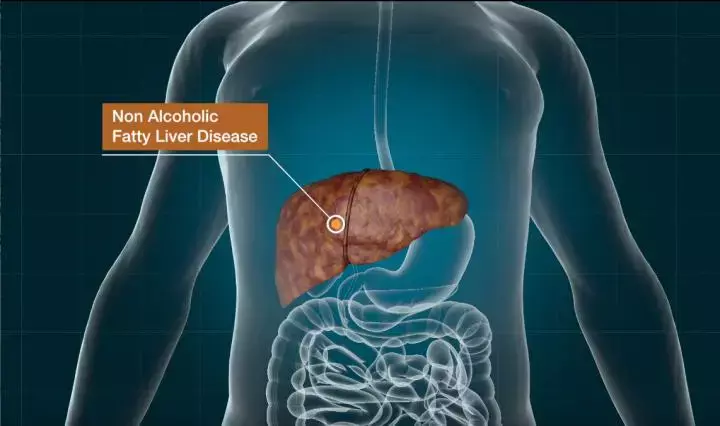- Home
- Medical news & Guidelines
- Anesthesiology
- Cardiology and CTVS
- Critical Care
- Dentistry
- Dermatology
- Diabetes and Endocrinology
- ENT
- Gastroenterology
- Medicine
- Nephrology
- Neurology
- Obstretics-Gynaecology
- Oncology
- Ophthalmology
- Orthopaedics
- Pediatrics-Neonatology
- Psychiatry
- Pulmonology
- Radiology
- Surgery
- Urology
- Laboratory Medicine
- Diet
- Nursing
- Paramedical
- Physiotherapy
- Health news
- Fact Check
- Bone Health Fact Check
- Brain Health Fact Check
- Cancer Related Fact Check
- Child Care Fact Check
- Dental and oral health fact check
- Diabetes and metabolic health fact check
- Diet and Nutrition Fact Check
- Eye and ENT Care Fact Check
- Fitness fact check
- Gut health fact check
- Heart health fact check
- Kidney health fact check
- Medical education fact check
- Men's health fact check
- Respiratory fact check
- Skin and hair care fact check
- Vaccine and Immunization fact check
- Women's health fact check
- AYUSH
- State News
- Andaman and Nicobar Islands
- Andhra Pradesh
- Arunachal Pradesh
- Assam
- Bihar
- Chandigarh
- Chattisgarh
- Dadra and Nagar Haveli
- Daman and Diu
- Delhi
- Goa
- Gujarat
- Haryana
- Himachal Pradesh
- Jammu & Kashmir
- Jharkhand
- Karnataka
- Kerala
- Ladakh
- Lakshadweep
- Madhya Pradesh
- Maharashtra
- Manipur
- Meghalaya
- Mizoram
- Nagaland
- Odisha
- Puducherry
- Punjab
- Rajasthan
- Sikkim
- Tamil Nadu
- Telangana
- Tripura
- Uttar Pradesh
- Uttrakhand
- West Bengal
- Medical Education
- Industry
Liver enzyme tests may predict risk for diabetes and aid in prevention: Study
 NONALCOHOLIC FATTY LIVER DISEASE (NAFLD) OFTEN LEADS TO VARIOUS LIVER COMPLICATIONS, BUT THERE IS A LACK OF DRUGS FOR THE TREATMENT OF NAFLD. view more CREDIT: GWANGJU INSTITUTE OF SCIENCE AND TECHNOLOGY
NONALCOHOLIC FATTY LIVER DISEASE (NAFLD) OFTEN LEADS TO VARIOUS LIVER COMPLICATIONS, BUT THERE IS A LACK OF DRUGS FOR THE TREATMENT OF NAFLD. view more CREDIT: GWANGJU INSTITUTE OF SCIENCE AND TECHNOLOGYUSA: Higher levels of liver enzymes ALT and GGT increases risk of diabetes development among Latinos, finds a recent study in the journal Diabetic Medicine. This means that liver enzyme tests can identify high‐risk individuals and might aid in diabetes prevention.
Non‐alcoholic fatty liver disease (NAFLD) has been shown to increase the risk of incident diabetes. But there is a lack of evidence in Hispanic/Latino -- the population that has high prevalence of NAFLD and obesity. To fill this knowledge gap, Carmen R. Isasi, Albert Einstein College of Medicine, Bronx, NY, USA, and colleagues conducted a prospective cohort study of 6,928 adults of Hispanic/Latino background who had no diabetes, did not report excessive alcohol use, and no hepatitis B and C infection at baseline (2008–2011).
The researchers estimated risk ratios (RR) was for incident diabetes, identified from visit 2 examination by glucose measurements or antidiabetic medication use, with baseline liver enzymes (alanine aminotransferase (ALT), aspartate aminotransferase (AST) and gamma‐glutamyl transpeptidase (GGT)).
Key findings of the study include:
- A total of 738 adults developed diabetes during 6 years of follow‐up.
- After adjusting for participant characteristics at baseline, versus the lowest quartile, highest quartiles of ALT and GGT were associated with risks for incident diabetes (RR for ALT: 1.51; RR for GGT: 2.39).
- Higher GGT levels predicted increased risk of incident diabetes even among those with ALT or AST below the median levels.
- The associations of ALT and GGT with incident diabetes were similar among most Hispanic background but were not seen among Dominicans.
- The association of AST with incident diabetes was found only among light‐to‐moderate alcohol drinkers (RR = 1.50) but not abstainers (RR = 0.91).
"Higher ALT and GGT levels are associated with increased risk of developing diabetes among Latinos," wrote the authors. "Liver enzyme tests might aid in diabetes prevention by identifying high‐risk individuals."
Reference:
The study titled, "Association of liver enzymes with incident diabetes in US Hispanic/Latino adults," is published in the journal Diabetic Medicine.
DOI: https://onlinelibrary.wiley.com/doi/abs/10.1111/dme.14522
Dr Kamal Kant Kohli-MBBS, DTCD- a chest specialist with more than 30 years of practice and a flair for writing clinical articles, Dr Kamal Kant Kohli joined Medical Dialogues as a Chief Editor of Medical News. Besides writing articles, as an editor, he proofreads and verifies all the medical content published on Medical Dialogues including those coming from journals, studies,medical conferences,guidelines etc. Email: drkohli@medicaldialogues.in. Contact no. 011-43720751


